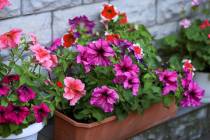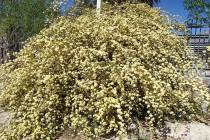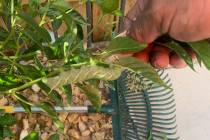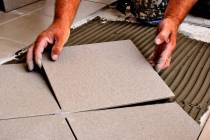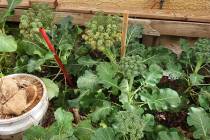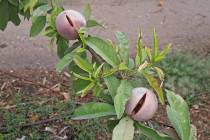Simple living saves resources
Many of us are focused on the economy right now. It seems that every day brings news of unprecedented financial change. The topic is complex but there is a fundamental component that comes to mind as both an opportunity and solution for many. It is the concept of simple living. It is the opposite of a near-trillion dollar corporate bailout, but has the potential to be many times more powerful and effective.
The idea has been around for a long time but it makes more sense now than ever. Simple living, or "voluntary simplicity" as some refer to it, is a lifestyle choice that embraces quality over quantity. Duane Elgin, author of the book "Voluntary Simplicity," defines simple living as "Living in a way that is outwardly simple and inwardly rich."
What does this have to do with green living or the economy? Just about everything actually.
Part of the reason for our economic woes is that too many of us have been living beyond our means -- our lifestyles have not been sustainable. This same principle extends to our use of resources such as energy, land and water. Embracing the concept of voluntary simplicity can help bring much needed balance to our lives. We start by reducing our consumption of unnecessary "stuff" and learning new ways to appreciate the value of our shared human experience.
A new American dream can emerge from this current economic quagmire, one that is based on conscious decision-making and awareness of true values rather than the consumption-at-all-costs mode of the old paradigm.
Years ago I read a book that had a profound impact on my perception of the world. It shifted the way I value my time in relationship to money. The book was "Your Money or Your Life" by Joe Dominguez and Vicki Robin. The title could not be more appropriate and, although parts of it are dated, I recommend this book for anyone struggling with debt and looking for a practical method to eliminate it.
That book sparked my interest. Subsequently, others added valuable insight to the concept of simple living, including "The Simple Living Guide" by Janet Luhrs, "Un-Jobbing: The Adult Liberation Handbook" by Michael Fogler, and, of course, "Voluntary Simplicity" mentioned above.
The bottom line is that the essence of a joyful, satisfying life is not found in the pursuit of more, more, more. Rather, by adopting a path that relieves us of the pressure of modern consumption, we gain the freedom to enjoy more of life's truly exquisite experiences. Reduced consumption saves money, time and resources. Simple living is an important part of adopting a truly green lifestyle.
Imagine the freedom and lightness of actually living below one's means. Saving money becomes a part of the routine. Think of it as paying yourself first. Enough money saved eliminates the need to pay interest on items we truly value. Sure, it takes some discipline to delay instant gratification in exchange for the ability to pay cash for large purchases in the future. The reward of avoiding financially debilitating interest and the feeling of accomplishment is well worth it.
We can eliminate much of the clutter and get down to the basics of living joyfully. Turn off the TV and escape the constant bombardment of commercial brainwashing designed to turn us into dreaded consumers. Use the library and read lots of books. Eat healthy food and cook at home more often.
We can choose to drive only when we really need to and carpool frequently. Better yet, walking or biking as much as possible can save on gas and improve our health. At that point, it might be time to consider whether that gym membership is really a necessity.
Turn off the lights you don't need and unplug your appliances that use energy even when off. Learn how to turn your yard into an edible landscape to grow some local produce. Reducing meat consumption can save lots of money, lead to better health and helps the environment as well. The same goes for seafood since our oceans are becoming severely depleted.
I've often said that green living is about personal responsibility and living simply can be a very responsible choice. Our consumption has negative effects on others around the world. It has been said that we should "live simply so that others may simply live." What a beautiful concept!
Sarah Ban Breathnach wrote, "The simpler we make our lives, the more abundant they become. There is no scarcity except in our souls. At the heart of simple abundance is an authentic awakening, one that resonates within your soul: All you have is all you need to be genuinely happy. All you need is the awareness of how much you really have, and then give thanks."
We are experiencing great turmoil at this time, financial and otherwise. Let's grasp this opportunity to recalibrate our relationship with the world toward a greener, more sustainable way of living. It's simple.
Steve Rypka is a green living consultant and president of GreenDream Enterprises, specializing in renewable energy, green building, alternative transportation and lifestyle choices for both residential and commercial clients. The company is committed to helping people live lighter on the planet. Rypka can be reached via e-mail at steve@greendream.biz. More information relating to this column is posted at www.greendream.biz.









